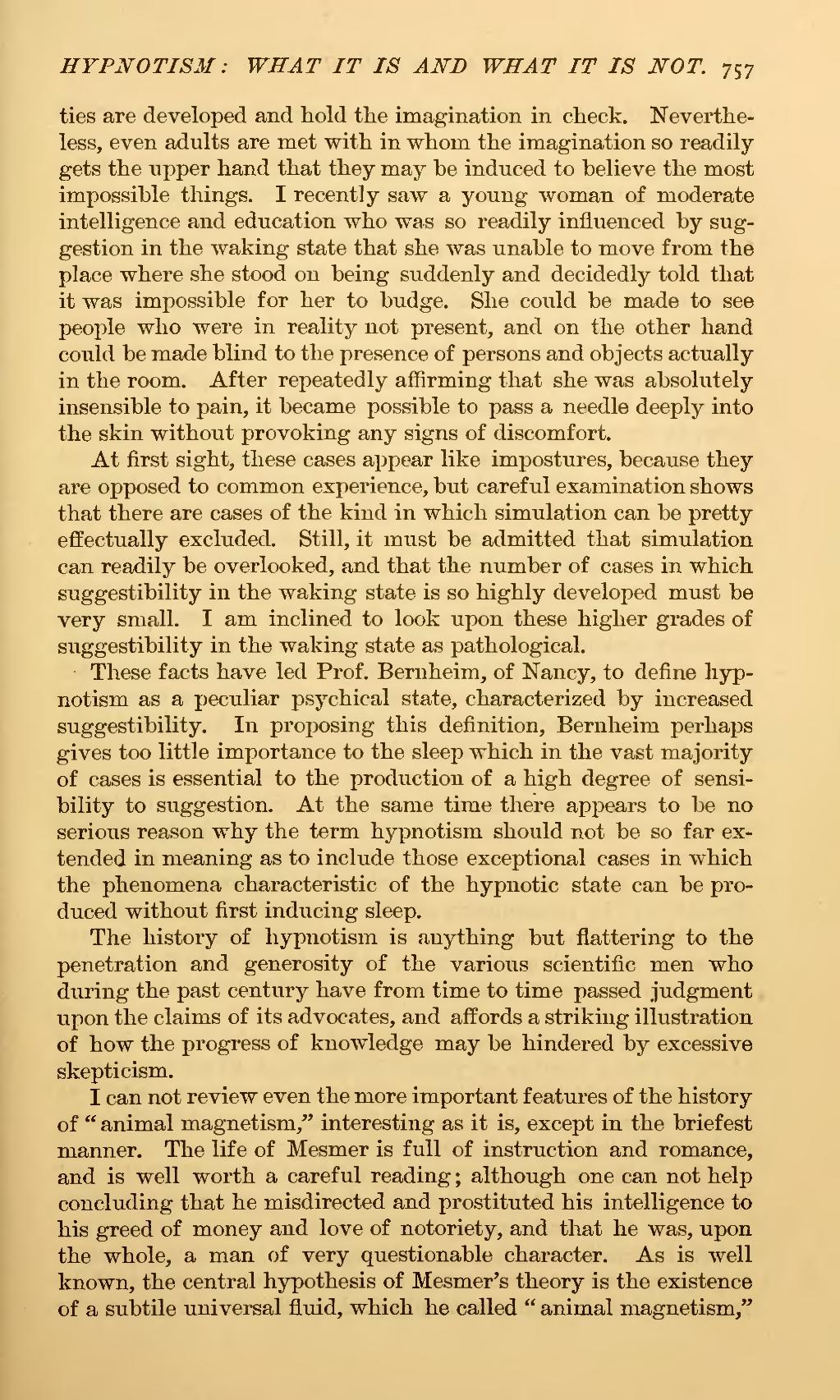ties are developed and hold the imagination in check. Nevertheless, even adults are met with in whom the imagination so readily gets the upper hand that they may be induced to believe the most impossible things. I recently saw a young woman of moderate intelligence and education who was so readily influenced by suggestion in the waking state that she was unable to move from the place where she stood on being suddenly and decidedly told that it was impossible for her to budge. She could be made to see people who were in reality not present, and on the other hand could be made blind to the presence of persons and objects actually in the room. After repeatedly affirming that she was absolutely insensible to pain, it became possible to pass a needle deeply into the skin without provoking any signs of discomfort.
At first sight, these cases appear like impostures, because they are opposed to common experience, but careful examination shows that there are cases of the kind in which simulation can be pretty effectually excluded. Still, it must be admitted that simulation can readily be overlooked, and that the number of cases in which suggestibility in the waking state is so highly developed must be very small. I am inclined to look upon these higher grades of suggestibility in the waking state as pathological.
These facts have led Prof. Bernheim, of Nancy, to define hypnotism as a peculiar psychical state, characterized by increased suggestibility. In proposing this definition, Bernheim perhaps gives too little importance to the sleep which in the vast majority of cases is essential to the production of a high degree of sensibility to suggestion. At the same time there appears to be no serious reason why the term hypnotism should not be so far extended in meaning as to include those exceptional cases in which the phenomena characteristic of the hypnotic state can be produced without first inducing sleep.
The history of hypnotism is anything but flattering to the penetration and generosity of the various scientific men who during the past century have from time to time passed judgment upon the claims of its advocates, and affords a striking illustration of how the progress of knowledge may be hindered by excessive skepticism.
I can not review even the more important features of the history of "animal magnetism," interesting as it is, except in the briefest manner. The life of Mesmer is full of instruction and romance, and is well worth a careful reading; although one can not help concluding that he misdirected and prostituted his intelligence to his greed of money and love of notoriety, and that he was, upon the whole, a man of very questionable character. As is well known, the central hypothesis of Mesmer's theory is the existence of a subtile universal fluid, which he called "animal magnetism,"

